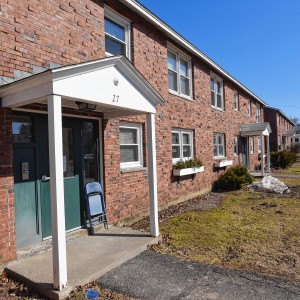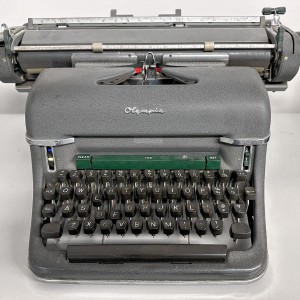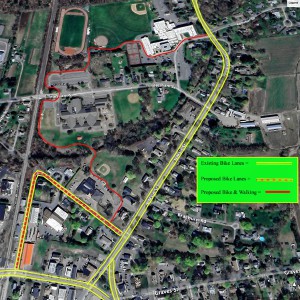Why a fee for paper bags at checkout?
| Published: 01-08-2020 11:15 AM |
I am writing today to thank Melina Bourdeau for the fine article she wrote about the single-use plastic bag ban that will take effect January 17. At the Friends of Reusable Bags, we had been wondering how aware the community was regarding this impending and important change in our daily lives. This piece has certainly helped.
While the actual ordinance was submitted by Councilors Sheila Gilmour and Tim Dolan and voted into law by the people of Greenfield, the original effort was begun by the same group of concerned citizens who submitted the Styrofoam ban passed a few years ago. One should note that this ban has not greatly upset our lives but it has surely had some, however small, effect on the amount of plastic that is driving the town’s waste disposal and recycling costs and the destruction of our waterways. Given the many photos we have all seen about the plastic-covered beaches all over the planet as well as the recent discovery that Greenfield will soon see the cost of all recycling double, everything we can do to lower the amount of plastic we use/buy/discard will be a major benefit to all.
But the main reason for this letter is that I wanted to clarify the reason that the bag ban bill calls for a fee to be imposed on paper bags at checkout. First, because we human beings are apt to go the easiest route, it would be easy for us to make no effort to bring our own reusable bags when shopping and to rely instead on free paper bags. Charging a fee for paper bags will help us remember our bags before we leave home because, human nature being what it is, no one will want to pay for something that was previously free.
Second, most paper bags are made, at least in part, from trees. For those who have followed the issue in the Recorder in recent months, it should be clear to all of us that trees are critical in helping remove carbon from the atmosphere and, as such, they are one of our most important allies in combating climate change.
Third, paper bags cost stores more than plastic bags. Paper bags cost more to make, more to ship and more to store because they are made from trees, they are heavier and they are bulkier than plastic bags. Because it was never the intention of the creators of the ban to make life harder for our local businesses, it was hoped that a fee-per-paper-bag would encourage shoppers to make the effort to remember to bring their reusable bags each time they shop. In fact, the bill’s assigned fee of a minimum of $.05/paper bag (stores are allowed to charge more than that) doesn’t come close to covering a business’ costs which come closer to $0.25/bag. A $0.25 cent fee, however, was considered by the City Council to be too much of a hardship for our local residents.
Hopefully, now, people will understand the reasons for which the bill was written in the way that it was. Because we want the transition to the single-use plastic bag ban to be as painless as possible, the Friends of Reusable Bags, now a committee of Greening Greenfield, has been collecting reusable bags from individuals, banks, businesses and organizations in the area and distributing them to people who might need help in getting what they’ll need.
In addition, we have joined forces with various groups and school efforts to make new bags from discarded materials. Mary from the Textile Company has been gathering fabric leftovers from customers and converting them into “kits,” complete with instructions, for sewers to make gorgeous cloth bags out of them.
In addition, working with Bag Share out of Hampshire County, the Connecticut River Conservancy, and more partners than we can name here, we have held a few workshops, and are planning several more, converting beautiful but otherwise non-recyclable grain and feed bags into wonderful reusable bags using grommets and used irrigation tape. There is such a great sense of satisfaction and pleasure that people get when, suddenly, their bag is finished and ready to use!
Article continues after...
Yesterday's Most Read Articles
So, hopefully, now that you know why paper bags are not a great alternative to single-use plastic bags, you will be careful to remember your reusable bags starting now. And, if you would care to help make reusable bags for yourselves and/or for others, please contact the Friends at www.greeninggreenfieldma.org and go to Take Action, Reusable Bags. We’d love to have you!
Louise Amyot is a member of Greening Greenfield and Friends of Reusable Bags.
 Guest columnists Ellen Attaliades and Lynn Ireland: Housing crisis is fueling the human services crisis
Guest columnists Ellen Attaliades and Lynn Ireland: Housing crisis is fueling the human services crisis My Turn: April is second chance month
My Turn: April is second chance month My Turn: Judgmental about malaise
My Turn: Judgmental about malaise Greg Franceschi: Support bike lanes and walking paths in South Deerfield
Greg Franceschi: Support bike lanes and walking paths in South Deerfield
